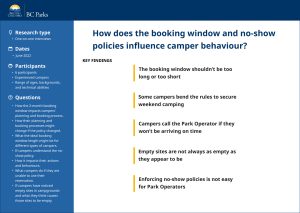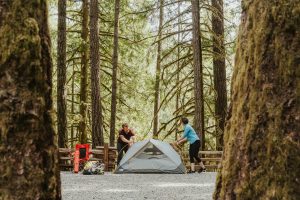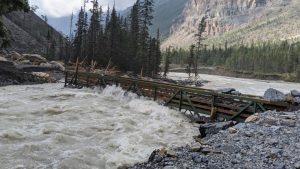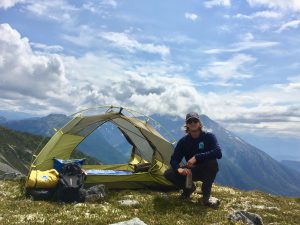How to keep a bear wild
Categories:
Seeing bears is an exciting experience for park visitors. And how you behave in the park has a direct impact on the safety and wellbeing of bears and other wildlife. Bears that come into conflict with people, especially those that have learned to associate people with food, may pose a threat to public safety and may have to be destroyed. These tragedies have a lasting impact on many people including park rangers, other staff, and visitors.
How do preventable bear-people conflicts result in the death of bears? Read on to see how inappropriate human behaviour leads to this incredibly sad outcome.
What does ‘a fed bear is a dead bear’ mean?
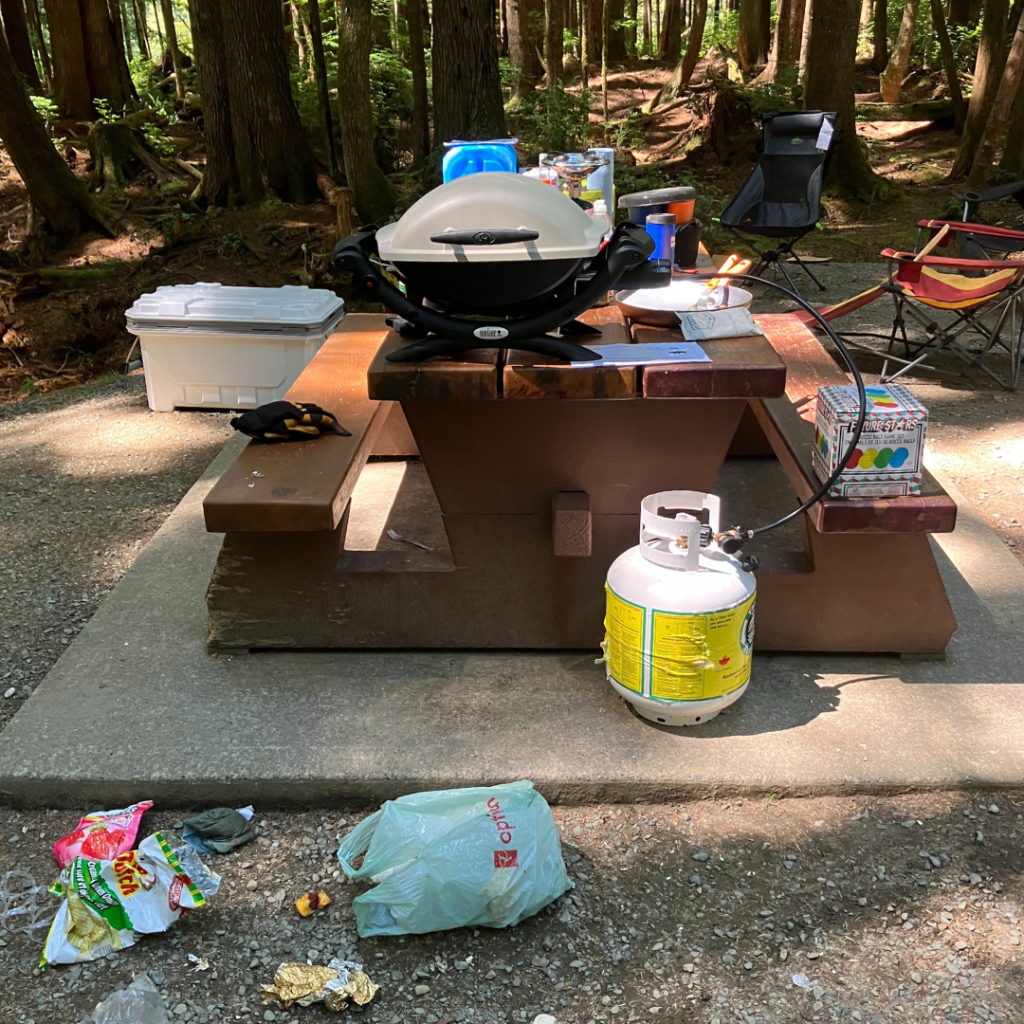
Did you know that wildlife (such as bears) has a strong sense of smell and are attracted to human food, garbage, and other items that smell like a potential food source? These unnatural food sources are known as wildlife attractants. When bears become food-conditioned to human food, garbage, and other unnatural attractants, they begin to seek out these food rewards and can even recognize coolers and other attractants by sight. A bear that has learned to associate food with humans is considered to have been fed, regardless of whether people have intentionally fed the bear or have failed to manage their attractants responsibly through littering and improper food/attractant storage. This can be an exceptionally dangerous situation for both bears and park visitors. When bears learn to associate people with food, they may become aggressive when seeking out these food sources and may have to be destroyed in the interest of public safety. Hence the saying, “a fed bear is a dead bear”.
What are wildlife attractants?
- Food (open or sealed)
- Garbage and food scraps (including grey water)
- Coolers (full or empty)
- Dishes and pots (clean or dirty)
- Pet food and bowls
- Bottles and cans (full or empty)
- BBQs and camp stoves (clean or dirty)
- ANY item associated with food preparation
- ANY item with a smell (such as toiletries and scented candles)
- Petroleum products (including motor oil bottles and gasoline/diesel cans)
How can you safely store attractants while you are away from your site or sleeping?
- Locked in your hard-sided vehicle or trailer
- Locked in your motor home or RV
- Food storage locker
- Certified bear-resistant container
- Bear-resistant food hang (if no other infrastructure is available)
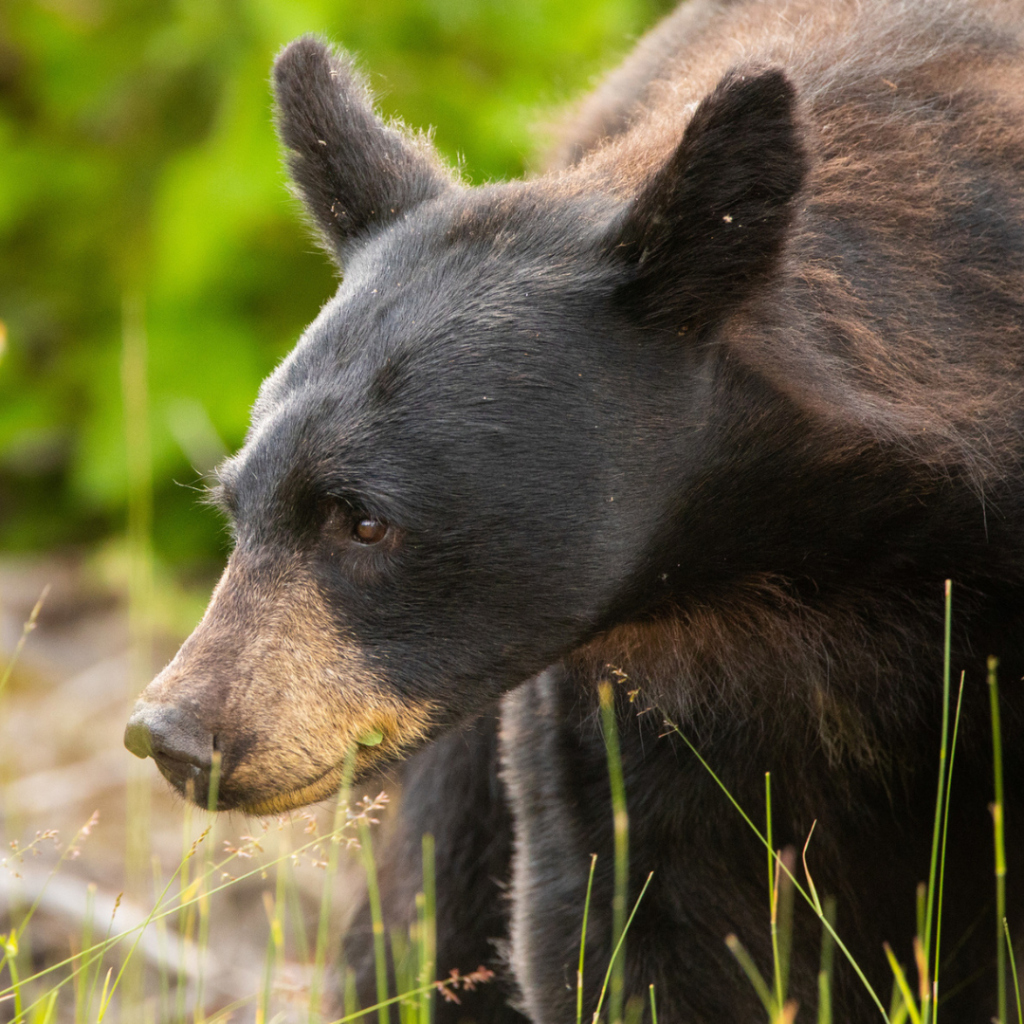
What can happen when a food-conditioned bear is in an area looking for unnatural food sources?
Parks staff will continue to educate campers and hikers on the importance of keeping a clean campsite and ensuring all attractants are stored appropriately in the hopes that the bear will move on and resume feeding elsewhere on its natural diet. If a food-conditioned bear continues to revisit an area for non-natural food sources, BC Parks may close the area for public safety reasons and to provide the bear with an opportunity to move on. The duration of the closure and next steps is determined with the Conservation Officer Service and other ministry staff as necessary. Anyone known to have contributed to a bear accessing human foods and garage may be charged and evicted from their campsite.
Why do bears need to be killed? Why can’t they just be moved elsewhere?
Bears that are used to accessing human/non-natural food sources may begin to aggressively seek out these attractants, posing a threat to people. Food-conditioned bears, and particularly those that show minimal fear of people are not candidates for relocation or rehabilitation, as the risk to public safety at their new destination is considered too high. Bears are highly intelligent, and once they learn they can access food from people, they will continue that behaviour even when placed in a new environment.
Let’s all do our part to keep wildlife wild, including bears.
If you are camping, be conscious of keeping a super clean campsite and ensure you pack away and lock up all your attractants. Never leave food, garbage, and other attractants unattended, even for a minute. This includes every time you leave your campsite (even for two minutes!) or go into your tent or camper for the night or to have a short siesta. Throw away all garbage and food scraps in a bear-proof garbage can or lock them up securely with other attractants. If you are hiking, remember to pack out all food, food waste (like banana peels or apple cores), and garbage. Keeping bears and fellow park visitors safe is our collective responsibility.
Learn more from our partners WildSafeBC.

